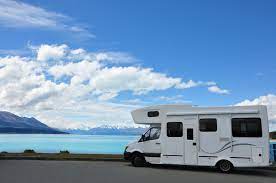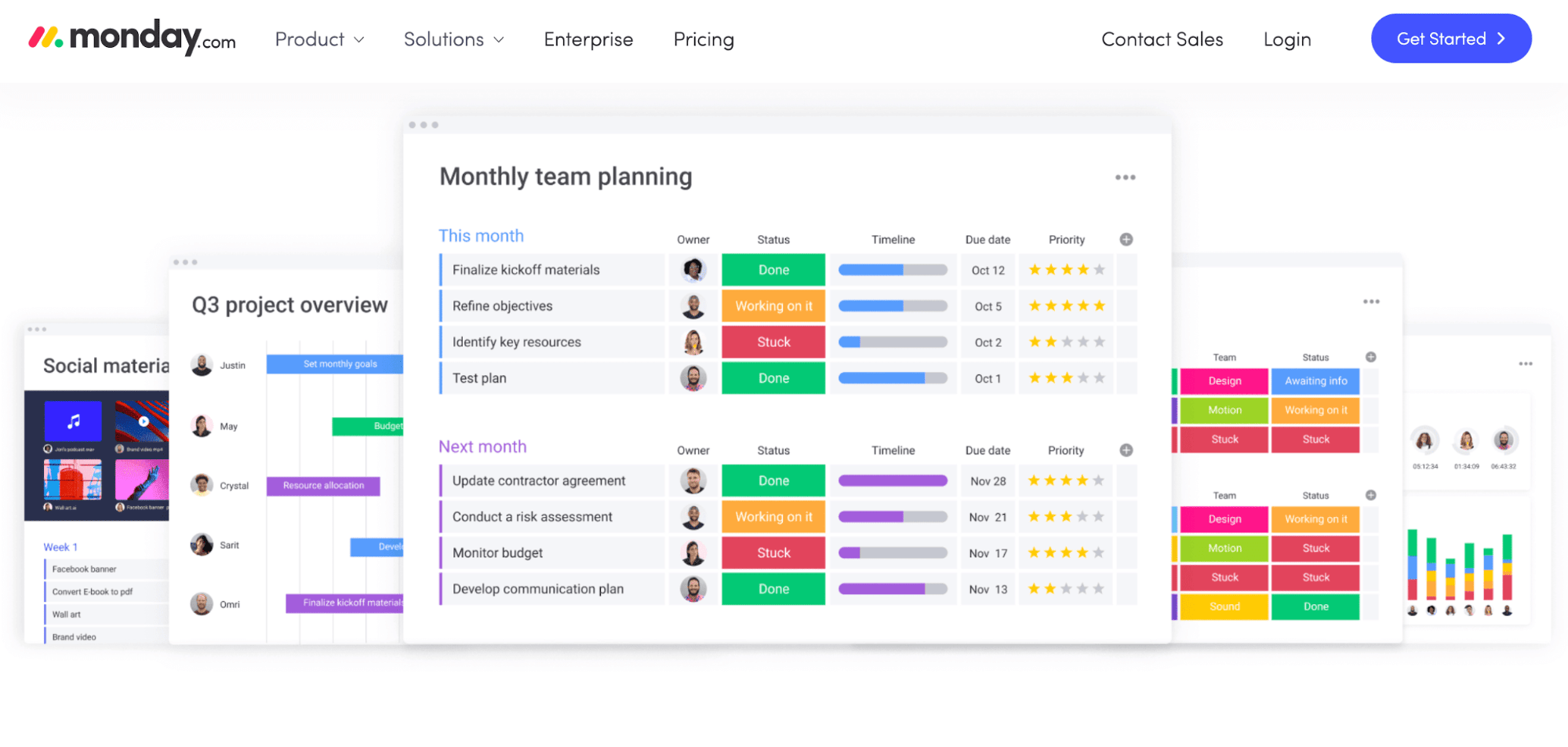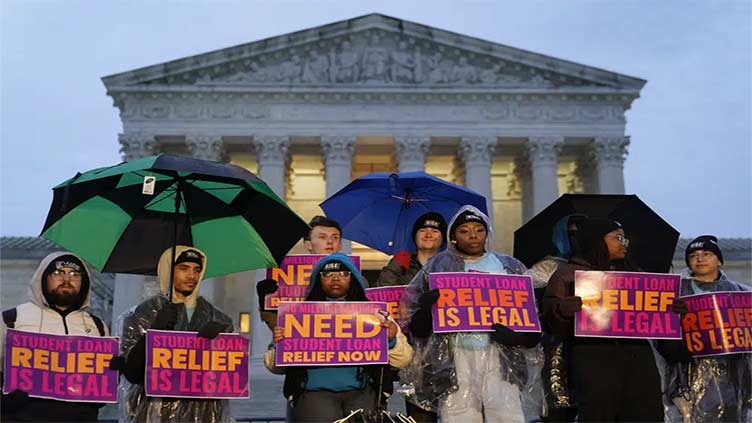The Basics of RV Insurance
RV insurance is a type of coverage specifically tailored to protect recreational vehicles. Here are some key factors to consider when comparing RV insurance policies:
- Coverage Options: RV insurance typically offers coverage for bodily injury and property damage liability, as well as collision and comprehensive coverage for your RV. Understanding the specific coverage options available to ensure adequate protection is important.
- Types of RVs: Insurance policies may vary depending on the type of RV you own, such as motorhomes, travel trailers, fifth wheels, or pop-up campers. Each type may have different coverage needs, so make sure your chosen policy is appropriate for your specific RV.
- Total Loss Replacement: This feature ensures that if your RV is deemed a total loss, the insurance company will reimburse you for the cost of a brand new RV of similar make and model rather than the depreciated value of your current RV.
- Personal Belongings Coverage: RV insurance may include coverage for personal belongings inside your RV, such as clothing, electronics, and camping equipment. This can be helpful in case of theft or damage to your belongings.
- Emergency Expense Coverage: Some policies cover emergency expenses, such as temporary lodging or transportation, if your RV becomes uninhabitable due to a covered loss.
- Full-timer Coverage: Full-timer coverage is important if you use your RV as your primary residence. It offers additional personal liability and belongings protection, similar to a homeowners insurance policy.
- Roadside Assistance: Many RV insurance policies offer roadside assistance, which can provide peace of mind in case of breakdowns or emergencies while traveling.
When comparing RV insurance policies, evaluating the coverage options, policy limits, deductibles, and premiums is crucial to finding the best fit for your needs.
Types of RV Insurance Coverage
When considering RV insurance policies, it’s important to understand the different coverage options available. Here are some common types of RV insurance coverage to consider:
- Liability Coverage: This coverage helps protect you financially if you cause an accident that results in injury or property damage. It typically includes bodily injury liability and property damage liability.
- Collision Coverage: This coverage helps pay for repairs or replacement if your RV is damaged in a collision with another vehicle or object, regardless of who is at fault.
- Comprehensive Coverage: This coverage protects damage to your RV caused by events other than a collision, such as theft, vandalism, fire, or natural disasters.
- Total Loss Replacement Coverage: With this coverage, if your RV is deemed a total loss, the insurance company will provide you with a new RV of a similar make and model rather than just reimbursing you for the depreciated value.
- Medical Payments Coverage: This coverage helps pay for medical expenses if you or your passengers are injured in an accident, regardless of who is at fault.
- Uninsured/Underinsured Motorist Coverage: This coverage protects you if you are involved in an accident with a driver without insurance or insufficient insurance to cover the damages.
- Roadside Assistance Coverage: This optional coverage assists if your RV breaks down or you need emergency services while on the road, such as towing, battery jump start, fuel delivery, or locksmith services.
Reviewing and understanding the coverage options carefully and the limits different RV insurance policies offer is essential. Consider your needs, budget, and the value of your RV when selecting the types and amounts of coverage that are right for you.
Factors Affecting RV Insurance Rates
When comparing RV insurance policies, it’s important to consider the factors that can affect your quoted rates. Understanding these factors can help you decide and find the best coverage for your needs. Here are some key factors that insurance providers take into consideration:
- Type of RV: The type of recreational vehicle you own will heavily impact your insurance rates. Motorhomes, travel trailers, and fifth wheels have unique risks and coverage needs. Motorhomes typically have higher insurance rates due to higher theft and more expensive repairs.
- Usage: How you use your RV can also affect your insurance rates. If you use it as a full-time residence, you may need specialized coverage and, as a result, higher premiums. On the other hand, occasional recreational use may result in lower premiums.
- Age and experience: Like with auto insurance, your age and driving experience can impact your RV insurance rates. Older, more experienced drivers often receive lower rates since they are perceived as less risky to insure.
- Driving record: Your driving record plays a significant role in determining your RV insurance rates. If you have a history of traffic violations or accidents, you may face higher premiums due to the increased risk associated with your driving habits.
- Location: Where you store and use your RV can also affect insurance rates. Areas with higher theft rates, vandalism, or severe weather may lead to higher premiums.
- Coverage options: The coverage options you choose can impact your premiums. Opting for comprehensive coverage, which protects against theft, vandalism, and damage unrelated to collisions, will likely result in higher rates.
- Deductible: The deductible is the amount you pay out of pocket before your insurance coverage kicks in. Choosing a higher deductible can lower your premiums, but it also means you’ll have to pay more in case of a claim.
- Additional discounts: Many insurance providers offer discounts for things like multi-policy bundling, anti-theft devices, safe driving records, and completion of RV safety courses. Taking advantage of these discounts can help reduce your insurance costs.
By considering these factors, you can better understand how insurance providers determine rates for RV policies. Evaluating these factors carefully while comparing different insurance options is important to ensure you find the best coverage at an affordable premium.
Choosing the Right RV Insurance Policy
When comparing RV insurance policies, it is crucial to consider key factors that can help you choose the right one for your needs. Here are a few important points to keep in mind:
- Coverage Options: Evaluate the coverage options offered by different insurance providers. Ensure the policy includes liability, comprehensive, collision, and uninsured/underinsured motorist coverage.
- Deductible Amount: Check the deductible amount for each policy. A higher deductible may result in lower premium costs, but consider whether you can afford to pay that amount in case of a claim.
- Limits of Liability: Look into the liability limits provided by the policies. Ensuring that coverage is sufficient to protect you in an accident is essential.
- Roadside Assistance: Consider if the policy includes roadside assistance. This can be especially helpful when you’re on the road and need emergency assistance or towing.
- Personal Belongings Coverage: Verify if personal belongings inside your RV are covered under the policy. Some insurance providers offer additional coverage for your items.
- Full-Time or Part-Time RVing: If you plan to use your RV as a full-time residence, ensure the policy caters to full-time RVers and provides appropriate coverage.
- Discounts and Savings: Inquire about any available discounts or savings opportunities. Some insurers offer discounts for safe driving records, multiple policies, or certain RV safety features.
- Financial Stability of the Insurer: Research the financial stability and reputation of the insurance company before making a decision. Consider checking independent ratings and customer reviews.
- Additional Coverage: Assess if any other coverage options suit your needs, such as glass coverage, vacation liability coverage, or emergency expense coverage.
- Cost: Compare the premium costs for each policy and ensure that they align with your budget. Remember to consider the value of the coverage provided rather than focusing solely on the price.
Considering these factors, you can make an informed decision when choosing the right RV insurance policy that offers the protection you need while on the road.
Understanding Deductibles and Coverage Limits
When comparing RV insurance policies, it’s essential to understand the deductibles and coverage limits involved.
Deductibles: A deductible is the amount you are required to pay out of pocket before your insurance coverage begins. RV insurance policies often have separate deductibles for different claims, such as collision, comprehensive, and personal liability. It’s important to consider the deductible amount and how it affects your overall premium and out-of-pocket expenses in case of a claim. Lower deductibles usually mean higher premiums, while higher deductibles can result in lower premiums.
Coverage Limits: Coverage limits refer to the maximum amount an insurance policy will pay for certain claims. RV insurance includes coverage for bodily injury, property damage, and comprehensive or collision claims. Evaluating the coverage limits offered by different policies and ensuring they align with your needs is crucial. Adequate coverage limits are necessary to protect yourself financially in case of accidents or damages.
When analyzing insurance policies, it’s wise to determine the deductibles and coverage limits that suit your budget and level of risk tolerance. Make sure to carefully review the policy documents and ask any questions you may have to gain a clear understanding of these factors.
Additional Coverage Options for RVers
When choosing an RV insurance policy, it’s important to consider any additional coverage options available to provide you with added protection and peace of mind while on the road. Here are some key other coverage options to consider when comparing RV insurance policies:
- Total Loss Replacement: This coverage option ensures that if your RV is deemed a total loss, you will receive a brand-new replacement RV of similar value rather than just the actual cash value of your vehicle at the time of the accident.
- Emergency Expense Coverage: This option helps cover unexpected expenses that may arise if you experience a breakdown or accident while traveling. It can help cover temporary lodging, transportation, and meals.
- Roadside Assistance: Roadside assistance coverage provides help when you encounter issues such as flat tires, dead batteries, lockouts, or mechanical failures. This coverage can save you from the hassle and expense of finding assistance on your own.
- Vacation Liability: This coverage protects you if someone is injured or their property is damaged while visiting or staying at your RV while parked at a campground or RV park.
- Personal Belongings: Many RV insurance policies cover personal belongings inside the RV. This can be especially important if you carry valuable electronics, jewelry, or recreational equipment.
- Full-timer Coverage: If you use your RV as your primary residence, full-timer coverage provides comprehensive protection comparable to homeowners insurance. It covers the RV itself and your personal property, liability, and additional living expenses if your RV becomes uninhabitable.
- Awning and Accessory Coverage: This coverage protects your awning and other accessories, such as satellite dishes, solar panels, or bike racks, attached to your RV.
- Pet Injury Coverage: Some RV insurance policies offer optional pet injury coverage if you travel with pets. This helps cover veterinary expenses if your pet is injured in an RV accident.
Remember, not all insurance companies offer the same additional coverage options, so it’s essential to thoroughly review the policy details and discuss your needs with an insurance agent to ensure you choose a policy that meets your specific requirements.
RV Insurance Discounts and Savings
When comparing RV insurance policies, it’s essential to consider the potential discounts and savings available. Insurance providers often offer various ways for RV owners to reduce their premiums. Here are some common discounts and savings that you should take into account during your evaluation:
- Multi-Policy Discounts: If you already have other insurance policies, such as home or auto insurance, you may be eligible for a multi-policy discount. Bundling your RV insurance with your other policies can lead to significant savings.
- Safe Driver Discounts: Some insurers offer discounts to RV owners with clean driving records or completed defensive driving courses. Maintaining a good driving history can lower your insurance premiums.
- RV Association Memberships: Being a member of certain RV associations or clubs might make you eligible for discounts. These organizations often partner with insurance providers, resulting in discounted rates for their members.
- Safety and Security Measures: Protecting your RV, such as installing anti-theft devices, GPS tracking systems, or alarms, can earn discounts on your insurance premiums. Insurance companies appreciate proactive measures that minimize the risk of theft or damage.
- Full-Time RV Discount: If you live in your RV full-time, you may qualify for a special discount. This discount recognizes the reduced risk of having an unoccupied residence, as the RV is your home and vehicle.
- Safe Storage Discounts: Storing your RV in a secure storage facility or using specially designed RV storage facilities may qualify you for a discount. These facilities reduce the risk of theft or damage to your RV, resulting in lower premiums.
- Claims-Free Discounts: Insurance providers often reward policyholders who have a claims-free history. The longer you go without filing a claim, the higher the potential for discounts on your RV insurance.
Remember, the availability of these discounts and savings may vary among insurance providers. When comparing RV policies, inquire about each company’s specific discounts to ensure you choose the one that provides the most value and best meets your needs.
Important Considerations for Full-Time RVers
When comparing RV insurance policies, full-time RVers have some unique considerations to remember. Here are a few key factors to consider:
- Coverage for personal belongings: Full-time RVers often have many personal belongings in their vehicles. Choosing an insurance policy that offers coverage for personal property, including items such as clothing, electronics, and furniture, is crucial.
- Liability coverage: Liability coverage is essential since full-time RVers may travel extensively. This coverage protects you if someone is injured or their property is damaged due to your RV.
- Emergency roadside assistance: As a full-time RVer, experiencing breakdowns on the road is a real possibility. Look for an insurance policy with emergency roadside assistance to help with towing, tire changes, and locksmith services.
- Full-timer’s liability coverage: Some RV insurance policies offer specific coverage for full-time RVers. This coverage provides additional protection for incidents that may occur while your RV is used as a permanent residence.
- Medical payments coverage: Medical payments coverage covers medical expenses for injuries sustained by you or your passengers in an accident involving your RV. Given the nature of full-time RV living, having adequate medical payment coverage is vital.
- Comprehensive coverage for travel interruption: In case your RV becomes uninhabitable due to a covered incident, comprehensive coverage that includes travel interruption protection can be useful. This coverage can help cover additional expenses for accommodations or transportation while your RV is being repaired.
- Coverage for personal liability: Full-time RVers may also consider personal liability coverage. This coverage protects you if you cause injury or property damage outside your RV, such as during outdoor activities or while camping.
It’s crucial for full-time RVers to carefully evaluate their insurance needs and compare policies to find one that offers comprehensive coverage for their unique lifestyle. Review policy limits, deductibles, and any exclusions or restrictions before making a final decision.
Dealing with Claims and RV Insurance Process
When comparing RV insurance policies, it is essential to consider how the insurance company handles claims and the overall insurance process. Dealing with claims can be a stressful experience, so it is vital to choose an insurance provider with a straightforward and efficient claims process.
Here are some key factors to consider when evaluating how insurance companies handle claims and the RV insurance process:
- Claims filing process: Look for an insurance company that offers an easy and convenient way to file claims. They should provide online claim filing options and a dedicated claims helpline.
- Claims settlement time: Find out the average time the insurance company takes to settle claims. Faster claim settlements can ensure that you get the necessary compensation quickly.
- Claims documentation requirements: Understand the documentation requirements for filing a claim. Ensure the insurance company provides clear guidelines on the documents needed, making the process smoother.
- Customer support: Evaluate the customer support provided by the insurance company. A responsive and helpful customer support team can assist you throughout the claims process and address any concerns or queries.
- RV repair process: In case of damage to your RV, inquire about the insurance company’s preferred repair shops or if they allow you to choose your own. Knowing if the repair process is efficient and aligns with your preferences is important.
- Transparency: Look for an insurance company that operates with transparency. They should provide clear information about coverage limits, exclusions, and additional fees or deductibles.
By considering these factors, you can choose an RV insurance policy that provides comprehensive coverage, a hassle-free claims process, and excellent customer support.
Tips for Lowering RV Insurance Costs
When it comes to RV insurance, there are several strategies you can employ to lower your costs. Here are some helpful tips to consider:
- Shop around for quotes: Take the time to gather quotes from multiple insurance providers. This allows you to compare rates and coverage options, ensuring you find the best policy for your needs at the most competitive price.
- Consider bundling: If you already have other insurance policies, such as auto or home insurance, inquire about bundling your RV insurance with them. Many insurance companies offer discounts for bundling multiple policies.
- Maintain a clean driving record: Insurance premiums are often higher for drivers with a history of accidents or traffic violations. By maintaining a clean driving record, you can qualify for lower rates.
- Take a defensive driving course: Some insurance providers offer discounts to RV owners who complete a defensive driving course. Not only can this course improve your driving skills, but it can also help reduce your insurance costs.
- Install safety features: Outfitting your RV with safety features such as anti-theft devices, alarms, and GPS tracking systems may qualify you for discounts on your insurance policy.
- Choose a higher deductible: Opting for a higher deductible means you’ll have to pay more out of pocket in the event of a claim, but it can also result in lower insurance premiums. Consider your financial situation and decide on a deductible that makes sense for you.
- Join an RV club: Some RV clubs offer discounted insurance rates to their members. Consider joining one of these clubs to access lower insurance premiums potentially.
By implementing these tips, you can take proactive steps toward lowering your RV insurance costs without compromising coverage. Regularly review your policy and compare quotes to ensure you get the best deal possible.










